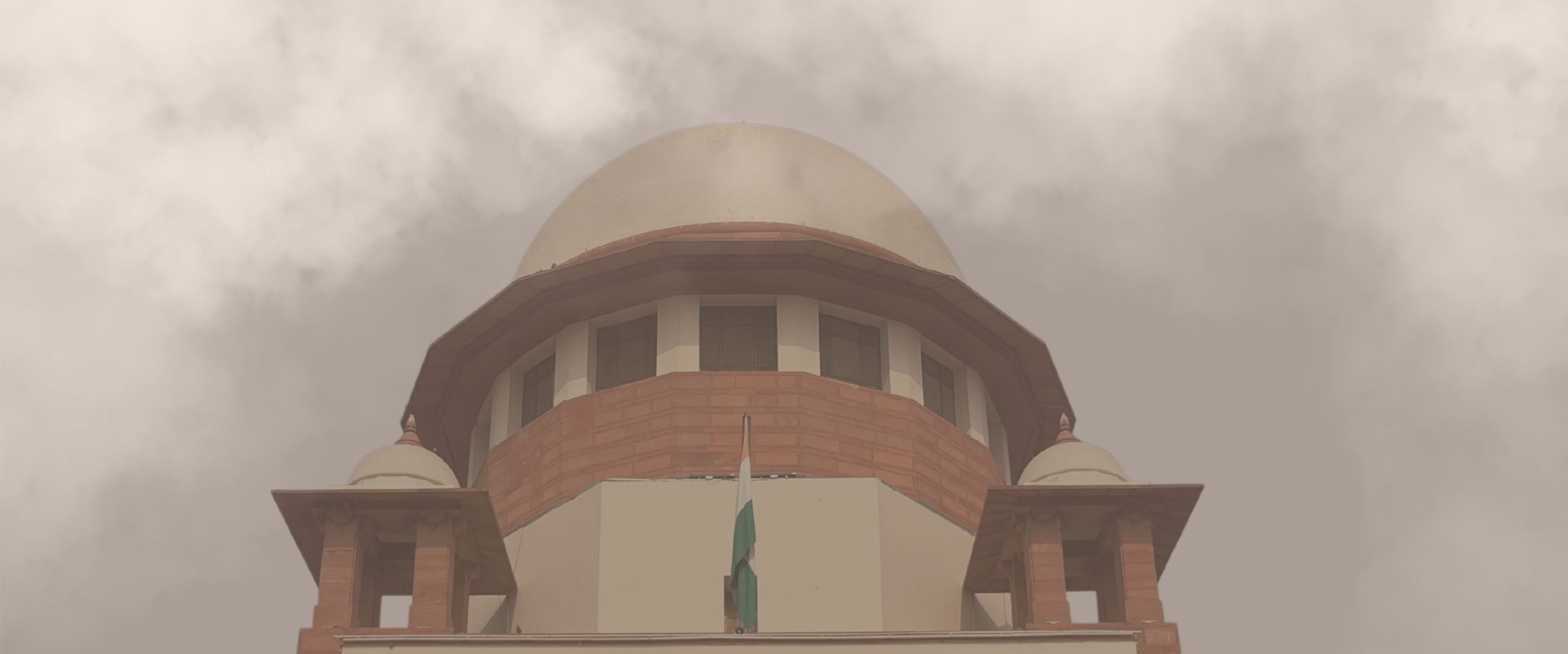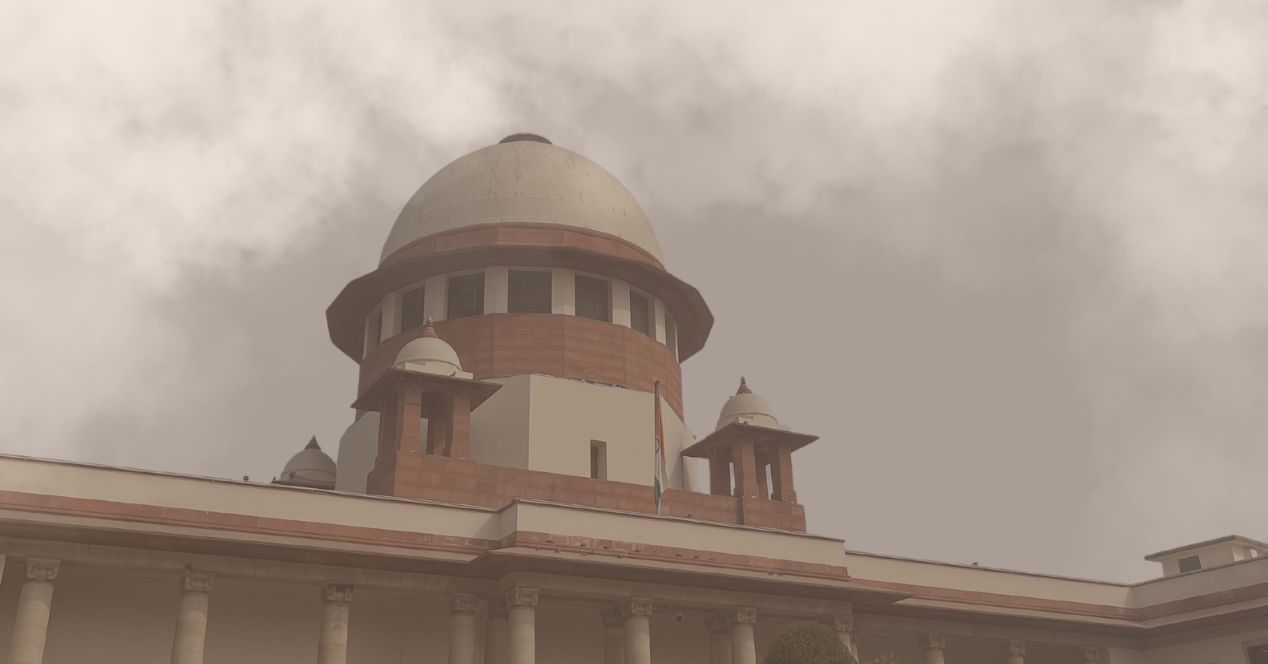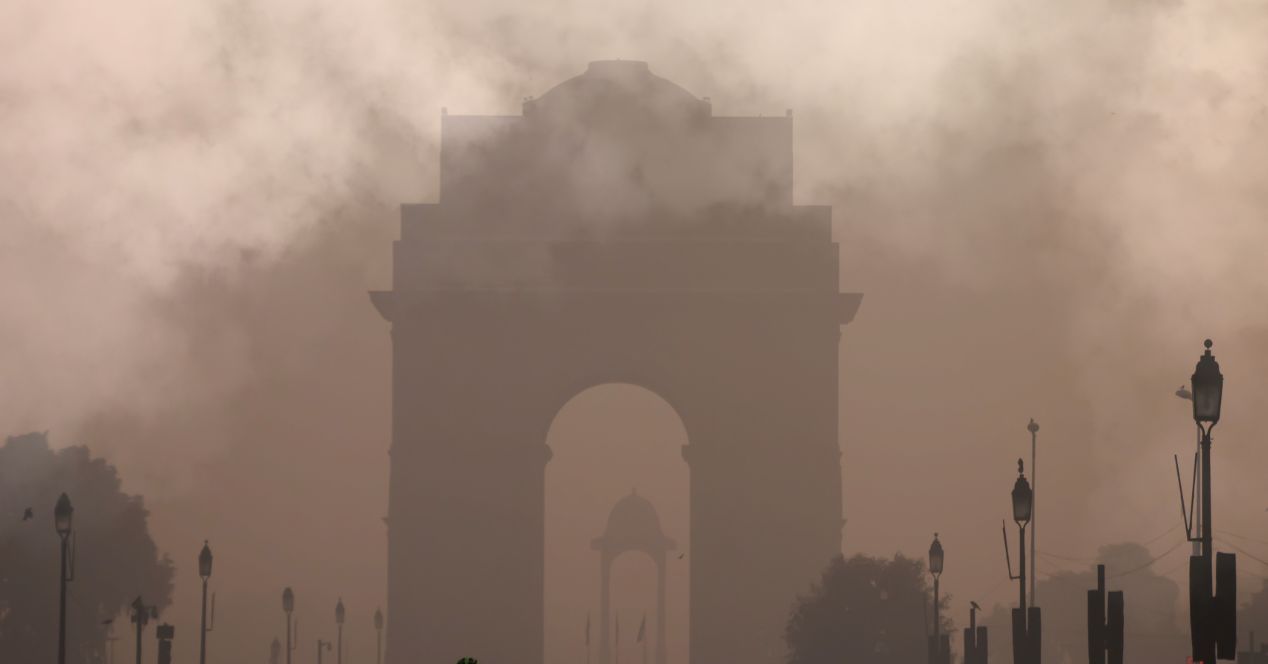Analysis
Gaps in GRAP: SC pushes for accountability and action
Judicial scrutiny of the pollution crisis highlights systemic failures, poor coordination, & the challenges in enforcing emergency measures

As the haze of pollution continues to blanket Delhi-NCR, the Bench of Justices A.S. Oka and A.G. Masih resumed their hearing of parties on measures to tackle the crisis. During hearings held on 28 November and today, the Court’s proceedings have highlighted glaring lapses in implementing emergency measures under the Graded Response Action Plan (GRAP). The Court also looked at some of the ripple effects of the situation on construction workers.
Repeated directives, poor coordination
Despite the severity of Delhi’s air pollution, the execution of GRAP measures, particularly at Stage IV—the highest level—remains a major concern. The Court was unequivocal in its criticism of the authorities’ failure to enforce these measures.
The reports, submitted by the Court-appointed Commissioners tasked with monitoring compliance, revealed several violations. For instance, trucks carrying construction materials but disguised as transporters of essential goods such as wheat flour were being allowed entry into Delhi. In many pockets, construction activities persisted in violation of Stage IV restrictions.
On 28 November, Justice Oka had remarked while studying the submitted reports, “Hardly anything was done by the police… Complete failure.” In his 2 December report, Advocate Manan Verma, one of the Commissioners, noted the following: “Because of no prosecution of officers under Section 14 of Commission of Air Quality Management (Act), there is little implementation of GRAP… About 30 to 40 percent [of officials] don’t know their duty…”
The Court also highlighted the lack of coordination among agencies, including the Municipal Corporation of Delhi, Delhi Police and the Delhi Pollution Control Committee.
Despite repeated directives, the Commission for Air Quality Management (CAQM) has struggled to enforce compliance. Aparajita Singh, the amicus curiae, stated that “the Commission should not just write letters; they should sit with all the governments and devise a way to stop the trucks.” The Court emphasised that the focus should shift to consistent enforcement and tangible results, noting that any relaxation of GRAP IV measures would be contingent on a sustained downward trend in the Air Quality Index (AQI).
ASG Aishwarya Bhati shared AQI data and advanced suggestions from CAQM for the relaxation of GRAP IV. While the Court acknowledged the socio-economic impact of stringent measures, it reiterated that GRAP IV could not be relaxed without visible improvements in air quality. “Ultimately, someday we will have to leave it to CAQM,” Justice Oka said, “But at least we must be satisfied that there is some consistent downward trend.”
Burning stubble, halted construction
Stubble burning continues to be a major contributor to Delhi’s poor air quality, despite repeated oral assurances from representatives of Punjab and Haryana to put in place measures to mitigate the practice. Data presented in Court revealed that cases of crop residue burning persist, albeit at reduced numbers. The sting operation carried out by India Today cited in the 28 November hearing showed state officials advising farmers to burn stubble after 4pm to avoid satellite detection. Justice Oka observed, “If correct, it is very serious… The government should immediately issue instructions to all officers not to indulge in any such activities.”
GRAP IV measures, which include a blanket ban on construction activities, have left thousands of workers without income. The Bench instructed state governments to utilise the labour cess collected to support such workers. Despite an earlier order mandating states to utilise the labour cess collected for supporting these workers, none of the NCR states—Delhi, Punjab, Haryana, Rajasthan, and Uttar Pradesh—have not reported compliance.
Senior Advocate Shadan Farasat, appearing for the Delhi government, informed the Court that the verification of over 13 lakh workers remained a bottleneck. He added that many workers had not renewed their registrations, further complicating disbursal. The Court reiterated that it needs to see “proof” of payments being made.
Today, the Bench directed the Chief Secretaries of the NCR states to appear via video conferencing for the next hearing on 5 December. “From our experience we know, when we summon top officers of the states, only then the ball starts rolling,” Justice Oka said, “We make it clear that unless substantial compliance with actual payment of amounts to the construction workers is reported, we will have to consider initiating action against the Contempt of Courts Act against erring officers.”
Parked trucks, threats to Commissioners
Truck movement into Delhi has emerged as a flashpoint in the Court’s deliberations. Despite GRAP IV’s mandate to ban non-essential truck traffic, reports revealed blatant violations. Trucks carrying heavy materials like cement and wood were found parked between Haryana and Delhi, with neither state claiming jurisdiction.
The safety of the Court-appointed Commissioners was also a pressing issue in the 2 December hearing. Instances of contractors using WhatsApp groups to track the Commissioners’ movements were reported, prompting the Court to order immediate action. Justice Oka remarked that they “cannot allow members of the Bar to be subjected to risk.”
Reports by the Commissioners also highlighted the limited action taken by authorities in response to violations. The Court also directed the Delhi Police to file detailed reports on actions taken against specific violations pointed out by the Commissioners, ensuring accountability at every level. The top court once again directed Delhi Police to deploy police personnel at entry checkpoints and ensure that all of them are manned adequately.
The Bench has also ordered hearings in January to “determine whether GRAP measures are sufficient” and figure out “permanent solutions”. The Court observed that “the problem is not the lack of measures, but their implementation”.
The next hearing is scheduled for Thursday, 5 December.




